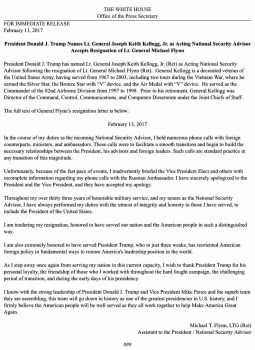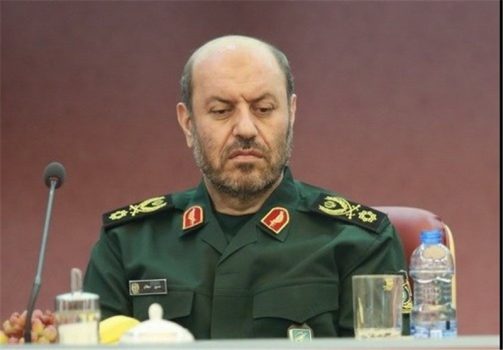North Korea’s Latest Nuclear Test Updates
On Wednesday, November 29, North Korea tested an intercontinental ballistic missile that’s allegedly able to reach the mainland United States. On the same day, the country declared itself to be a nuclear state. This came a few days after US President Donald Trump put North Korea back on Washington’s state sponsors of terrorism list. In the meantime, the US and South Korea have been continuing to hold joint air drills.
It was the first time that a missile was launched from Pyongsong, a province in South Pyongan, around 29 kilometers from the capital, Pyongyang. The missile is a Hwasong-15, which is able to contain a nuclear warhead and is reportedly more powerful than missiles that had been tested earlier. It ascended to over 4,000 km into space and landed by Japan’s west coast, 1000 km from Pyongsong.
David Wright, physicist and co-director of the Union of Concerned Scientists’ Global Security Program said the this latest ICBM flew longer than the ones recently launched. He also said that this missile could reach any part of mainland US. “This is significantly longer than North Korea’s previous long-range tests, which flew on lofted trajectories for 37 minutes (July 4) and 47 minutes (July 28). Such a missile would have more than enough range to reach Washington, D.C., and in fact any part of the continental United States.” http://allthingsnuclear.org/dwright/nk-longest-missile-test-yet
However Pentagon Spokesman Col. Robert Manning said that the missile was not a threat to American territories or their allies. “The North American Aerospace Defense Command (NORAD) determined the missile launch from North Korea did not pose a threat to North America, our territories or our allies.” https://www.defense.gov/News/News-Releases/News-Release-View/Article/1382158/statement-by-pentagon-spokesman-col-robert-manning-on-north-korea-icbm-launch/
After the test-firing on November 29, President Trump tweeted that he had talked to the President of China, North Korea’s biggest trade partner and ally. He also said that North Korea would be given major sanctions. “Just spoke to President XI JINPING of China concerning the provocative actions of North Korea. Additional major sanctions will be imposed on North Korea today. This situation will be handled!” https://twitter.com/realDonaldTrump/status/935881037254725632
On the same day, US Ambassador to the UN Nikki Haley delivered remarks at an Emergency UN Security Council Meeting concerning North Korea. Haley also called for all nations to sever ties with North Korea. She ended her speech saying that if North Korea would choose war, they would face destruction.
“The nations of the world have it within their power to further isolate, diminish, and, God willing, reverse the dangerous course of the North Korean regime. We must all do our part to make that happen….We have never sought war with North Korea, and still today we do not seek it. If war does come, it will be because of continued acts of aggression like we witnessed yesterday. And if war comes, make no mistake, the North Korean regime will be utterly destroyed.” https://usun.state.gov/remarks/8165
National security adviser H.R. McMaster, who spoke at the Reagan National Defense Forum on December 2, said that with every test firing, North Korea was learning more about the missiles. “It will take some time to assess each of these missile launches but what is clear is that every time he conducts a missile launch and nuclear test he gets better. Whether it is a success or failure isn’t as important as understanding that over the years he’s been learning from failures, improving and thereby increasing his threat to all of us.” The full video of McMaster’s speech can be seen here https://www.youtube.com/watch?v=KfdFn68NhLM
At the Council of Defense Ministers and the Security Council of the Collective Security Treaty Organization in Minsk, Russian Foreign Minister Sergey Lavrov said he believes Ambassador Haley’s call for all nations to cut ties is a mistake. He further said that the US’ actions may be a provocation for North Korea to retaliate, and urged for dialogue instead.
“We have a negative view of this idea…. All resolutions introducing sanctions contained a mandatory demand to resume the political process and talks. The US side completely ignores precisely this demand. I believe this is a big mistake. In addition, it appears that the latest US actions deliberately aim to provoke Pyongyang into taking further steps. This past September, our American colleagues hinted confidentially to us (I will make no secret out of this) that the next exercise was only scheduled for spring and that the DPRK could take advantage of this pause and not make any abrupt moves either. Why not try and launch some kind of dialogue in this situation?”
http://www.mid.ru/en/press_service/minister_speeches/-/asset_publisher/7OvQR5KJWVmR/content/id/2971951
China, North Korea’s closest ally, commented on North Korea’s ICBM test firing through Foreign Minister Geng Shuang, “The UN Security Council resolutions have clear stipulations about the use of ballistic missile in the DPRK’s launching activities. China expresses grave concern and opposition to the DPRK’s launching activities. China strongly urges the DPRK side to abide by relevant Security Council resolutions and cease actions that will heighten tensions on the Korean Peninsula. We hope that all relevant parties will act cautiously and work together to safeguard peace and stability in the region.” http://www.fmprc.gov.cn/mfa_eng/xwfw_665399/s2510_665401/2511_665403/t1515157.shtml
The US and North Korea have experienced strained relations of late, with President Trump calling North Korea out for escalating their nuclear weapons program in a speech to the United Nations General Assembly in September. The President also threatened to “totally destroy” North Korea in the speech.
North Korean leader Kim Jong-Un responded in a speech via the KCNA, the North Korean state news agency, saying that he would “tame” the US President “with fire.”
Full texts of President Trump and Kim Jong-Un’s speeches can be found at the following links:
https://koreas.liveuamap.com/en/2017/21-september-full-transcript-of-kim-jonguns-statement-kcna

